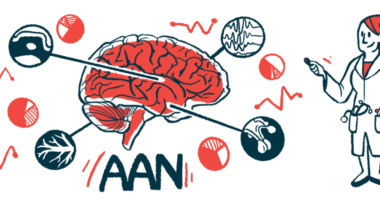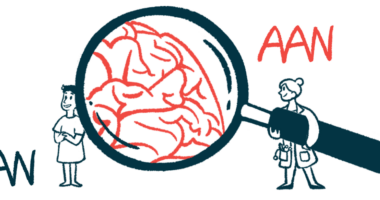Off Periods and Biological Clock Malfunctions

Before I was diagnosed with Parkinson’s disease seven years ago, I hadn’t heard the term “off periods.” After getting involved in the Parkinson’s community, I discovered that the term is frequently used.
One reader asked, “Why do my symptoms get so bad in the early evening?” My response was, “It’s an off period.” But that answer might be wrong.
Not everyone with Parkinson’s disease experiences off periods. They are more common the longer you have Parkinson’s and the longer you take levodopa.
An article published in the Journal of Patient-Centered Research and Reviews noted that, “Wearing off of Parkinson’s disease medication is common, but triggers and coping strategies for this transient phenomenon are poorly understood.”
After more than 2,000 Parkinson’s patients completed a survey about these periods, researchers concluded that, “Although OFF periods are common, the individual experiences of OFF vary. This knowledge could be used to develop new counseling strategies for OFF periods in people with Parkinson’s disease.”
An off period refers to the experience of worsening symptoms and is often attributed to medication failing to provide relief. Although this may be true in some cases, it didn’t fit my situation. There seemed to be something else at work triggering the diurnal shifts to the horrible experience of suffering for hours.
Off period triggers have been identified in studies as stress, anxiety, depression, tiredness, and fatigue. I couldn’t pinpoint a distinct, consistent external trigger. It just happens every evening, and some days are worse than others.
Switching medications and adjusting dosages and timing didn’t make the evening troubles go away. The distress occurs every day regardless. Nothing has worked to prevent this entirely, but I found that I could alter its intensity and effects on my life. That’s what TBM, my three-tiered self-management strategy of threshold management, brain rewiring, and mindful movement, is for. Maybe I can’t fix this broken biological clock because it’s part of the disease, but I can find ways to live better.
The surprise was finding that circadian rhythm malfunctions are often described as part of the disease. After seven years of treatment and more than a dozen doctors, no one has discussed circadian rhythm malfunctions with me.
Circadian rhythm is established as our body undergoes behavioral and physiological changes while switching between night and day. It is an alternating cycle of sleep and wakeful activity. Parkinson’s disease can cause diurnal fluctuations in which sleep is triggered during the day and waking at night. This disrupts homeostasis and may even exacerbate disease progression.
Parkinson’s is a multisystem disease, and a growing body of evidence suggests that circadian rhythm disturbance is a part of that. We need to understand more about the fluctuation of sleep-wake cycle dysregulation and its impact on motor disability and the autonomic nervous system. Besides the dopamine replacement treatments, strengthening the circadian functions through a healthy lifestyle, physical activity, and melatonin therapy could potentially improve quality of life for Parkinson’s patients and slow disease progression.
In a previous column, I described a breakdown in the brain’s ability to regulate and moderate homeostasis as a critical part of Parkinson’s. Circadian rhythm dysfunction is part of this chronic homeostasis dysregulation. The most common side effect is sleep disruption.
Since medication has no effect on my evening off period, I suggest that it is tied to this diurnal homeostasis dysregulation. It’s not so much about the meds not working (although that plays a part eventually), but rather our brains flipping the chemical wake-sleep switches at unusual and inconvenient times. Added to this abnormal wake-sleep switching, there is often a cascade effect triggering an intensification of Parkinson’s symptoms. Thus, we apply the label “off period.”
When I write about the usefulness of TBM, I am speaking about tools that can help to limit this cascade effect. Sure, medications help. But Parkinson’s is first a brain disease. Retraining my brain includes relearning how to deal with off periods. It’s been an important part of finding my way to a better quality of life, despite the limits of a chronic illness. I exercise my brain out of the chaos of diurnal disruption and back to homeostasis. I try to do this every day.
Circadian rhythm dysfunction better explains my off period timing and symptoms than a medication losing potency. It fits the new model of the disease that incorporates a second dopamine center and its role in bodily homeostasis. It explains why I must endure this chronic suffering every evening. Understanding that helps me to better manage this chronic illness.
Many references were consulted for this column. For a complete list, please visit my website.
Note: Parkinson’s News Today is strictly a news and information website about the disease. It does not provide medical advice, diagnosis or treatment. This content is not intended to be a substitute for professional medical advice, diagnosis, or treatment. Always seek the advice of your physician or another qualified health provider with any questions you may have regarding a medical condition. Never disregard professional medical advice or delay in seeking it because of something you have read on this website. The opinions expressed in this column are not those of Parkinson’s News Today or its parent company, BioNews, and are intended to spark discussion about issues pertaining to Parkinson’s disease.








Comments
Barbara Peckham
I always enjoy reading your articles They seemed to be right on target with what I am experiencing and give me food for thought. I have had "down periods" recently and my neurologist prescribed more carbadopa levadopa to solve the problem. It seems to be working for the time being.
I wake up at least twice a night to go to the bathroom. I do not take naps during the day, but I do go to bed around 9, not to sleep immediately, but to stretch out and relax while watching TV. I usually fall asleep around 12 or 1. The circadian rhythm idea seems to make sense to me , Thank you once again for sharing your findings and experiences.
Mike
Dr. C.
Very interesting perspective. Your notion that ‘off-periods’ can be interrupted by Self-Management is very hopeful. Otherwise if off periods are a function of time we are stuck in our own decline. Brain rewiring for me is exercise when I feel stiff. That can be done fairly simply. I use balance exercises ,LSVT and other on-line routines. Mindful movement is the intentional exercise I do every morning and other times without fail which helps me in my fight versus my condition. Threshold management is how I fight to stay positive. These snippets keep my mind percolating.
My Circadian rhythm has never been normal since I wake up to pee several times nightly. Sleep disruption is not uncommon
though my own version of Meletonin ‘Therapy has been helpful. Dr. C your pieces are both stimulating and thought provoking. Thank-you for you efforts, Blessings , Mike
Garry SANDERS
I was diagnosed in January /2010, in November 2017 , I had DBS surgery to help control my trimmers. Today I take Stalevo 50/200/200 6 times a day. Just recently I started taking a booster dose of Sinemet 25/100 CR at 1PM . It seems to help a little but not as well as I would like.I believe there are 3 things that bring on my off episodes. The first is sleep. If I don’t get enough restful sleep my off episodes will be more and harsher 2 is the amount of stress in my life. The more stress,physical, psychological or emotional stress I have the more off periods and harsher, 3 the more time I spend on my iPad the more and harsher the episodes . I believe that the light that Is emanated from the iPad causes more episodes and harsher also. Fatigue is a factor in my lifestyle, I used to be extremely active. Now I spend most of my time on the couch with my iPad looking up information on Parkinson’s or side effects of medication I take. I hope others read this and respond if they have the same problem with there iPad. Regards To All Garry Sanders
karen steck
I just read your article, P.D. is so confusing to me, I felt that his doctor would be able to help us on some of the issues that John is having, but all she does is put him another pill, seems to work at first, but then I am seeing different effects of this disease, i am grasping for straws!
phyl
I have enjoyed your variation of topics In your newsletter. My question is a little different although it deals with PD.I am a 84 year old woman and am contemplating going to my granddaughter's law school graduation which would involve a
plane,using a walker and all that medication requires in addition to my balance problems. Your views would be greatly appreciated.
Mike
Phyl,
I am only 65. My granddaughter will marry in July in Alaska. My wife and I are planning to attend. Like yours it is a critical to attend. Plane rides are tough for me. I learned some things when we went to Hawaii last June. Board the plane first. Use the wheelchair that is offered. If you use a cane keep using it just shove it in the overhead when you board. Try to stick to your medication schedule. If you exercise keep doing it. Don’t allow yourself to get stiff. Have fun. Blessings, Mike
Mike
I try and manage off periods. I try and use the “Three tiered self management” technique that you have suggested Dr. C . It is a mouthful. Yesterday we visited my Dr. , a movement disorder specialist in Phoenix,
120 miles from my home in Sedona. We are working on finding a proper timing for taking my 6 C/L pills per day. So I started the shift last night. I had an awful sleeping night. This morning in conversation with my wife I blamed my uneasy night on the change in my ingestion schedule. She was doubtful.
When I rethought it I realized that my uneasy night more probably had to do with the high octane energy drinks and the ground beef tacos that I avoid normally but I had eaten freely on the trip.
So once again my wife was right, her insights are invaluable. Blessings, Mike